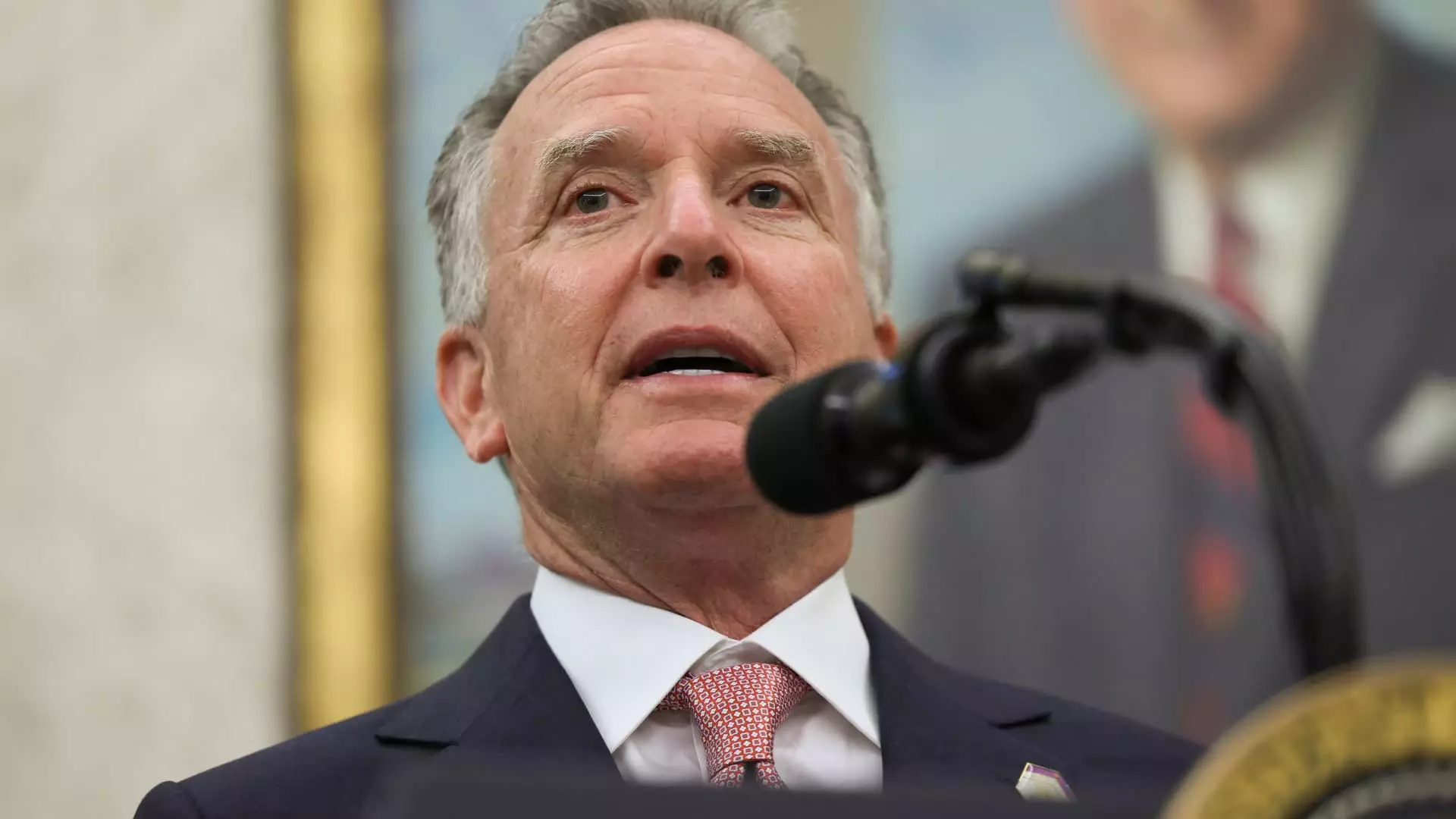In a surprising turn of diplomacy, U.S. officials have announced that Russian President Vladimir Putin has tacitly agreed to consider potential security guarantees for Ukraine akin to NATO’s Article 5. While this diplomatic breakthrough feels promising on the surface, it masks the deep uncertainties and inherent risks of trusting a regime with a history of deception and strategic ambiguity. The notion that Russia might agree to “Article 5-like protection” as a means to end the war raises more questions than answers about the genuine commitment to peace and stability. It suggests a potential shift in Russia’s posture—yet, it’s crucial to scrutinize whether such assurances are merely superficial gestures or meaningful concessions capable of cementing long-lasting peace.
The core issue lies in whether Russia’s purported agreement reflects real intent or is just another calculated move to buy time, mitigate pressure, or sow confusion among Western allies. Historically, Russia has demonstrated a propensity for strategic doublespeak—promising peace only to rearm, invade, or justify further aggression later. To accept vague security guarantees without concrete enforcement mechanisms is to gamble with Ukraine’s sovereignty, in hopes that Putin’s word will hold when it has proven so unreliable in the past.
European and Ukrainian Perspectives: A Delicate Balance
European leaders and Ukrainian officials have expressed cautious optimism about this development. Ursula von der Leyen underscores their willingness to contribute to security measures, which might provide Ukraine with a much-needed shield against future aggression. Ukrainian President Zelenskyy describes the move as a “historic decision,” framing it as a vital step toward peace. Yet, beneath this optimistic veneer lies a complex web of expectations and red lines. Ukraine’s unwavering stance has been that no territorial concessions will be made — particularly regarding Crimea and the Donbas — which Russia’s previous actions completely undermined.
Zelenskyy’s insistence on maintaining sovereignty and territorial integrity presents a stark contrast to the possible terms of negotiations alluded to by Trump and European officials. If Russia is to accept guarantees that do not address these core issues—if it seeks recognition of annexed territories or demilitarization in exchange for peace—Ukraine’s resolve will be put to the ultimate test. The danger is that such guarantees may be constructed in a way that ultimately compromises Ukraine’s sovereignty, leading to a fragile peace that leaves the door open for future conflicts.
The Political Chessboard: Trump, Putin, and the Future of Diplomacy
The recent interactions between Donald Trump and Vladimir Putin add layers of complication to an already intricate diplomatic puzzle. Trump’s meetings have been characterized by talk of peace deals and moderation, but the details remain murky, raising skepticism about America’s true intentions. His suggestion to give Ukraine over the Donbas and other concessions—most notably the idea of Ukraine relinquishing part of its sovereign territory—could potentially embolden Russia’s maximalist aims. Such concessions, without firm guarantees against further invasions, risk dissolving Ukraine’s territorial integrity in the name of expedience.
Meanwhile, the Biden administration appears to prefer a cautious approach, emphasizing the need for practical security measures that fully guarantee Ukraine’s safety. Yet, the clashing narratives—Trump’s more accommodating stance versus a traditional Western commitment to Ukrainian sovereignty—highlight a dangerous divide within the Global West. If compromise is to be meaningful, it must rest on solid ground, with transparent commitments and clear enforcement mechanisms, not mere diplomatic window dressing.
The Risks of Illusory Guarantees in a Volatile Power Landscape
Offering “Article 5-like protection” to Ukraine without concrete commitments effectively treads a tightrope between diplomacy and deception. Russia’s history shows that promises made in negotiations—if not backed by enforceable actions—are often used as tools for deception and delay. If the West accepts vague guarantees, it risks fostering a false sense of security that could be easily shattered by Moscow at the earliest convenience.
Furthermore, the broader geopolitical implications are unsettling. If Ukraine becomes a pawn in a fragile diplomatic dance, Western countries might inadvertently weaken their own security architecture. The notion of relying on an agreement with an autocratic regime that has traditionally flouted international norms is inherently dangerous, especially when that regime’s official stance involves demands for recognition and demilitarization that threaten regional stability.
This potential agreement also risks triggering a broader clash within NATO. Member states differ on how aggressively to confront Russia, and wavering commitments could undermine collective unity. The danger lies in transforming an opportunity for stability into a gamble that might instead embolden Russia, entrenching divisions among allies and setting the stage for future conflicts.
An Urgent Need for Genuine Clarity and Strategic Courage
Real peace in Ukraine depends on pragmatic and transparent guarantees rooted in international law, rather than hopeful promises negotiated behind closed doors. Western policymakers must resist the temptation to accept vague assurances that serve Putin’s narrative of negotiation without substance. Instead, they need to insist on verifiable commitments, robust security arrangements, and a firm boundary that upholds Ukraine’s sovereignty.
The Biden administration’s willingness to explore security guarantees should be tempered by a clear-eyed understanding of Russia’s past behavior. Diplomatic gains are only meaningful when they translate into tangible security, not empty words. To truly secure Ukraine’s future, Western nations must be prepared to stand firm— balancing diplomacy with deterrence, and safeguarding the core principles of sovereignty and territorial integrity that underpin global order.
In the end, the road to peace is fraught with peril, especially when the foundations of trust are shaky and the stakes are historic. Any agreements reached must be built on unwavering resolve, strategic foresight, and an uncompromising commitment to justice—lest fleeting hope turn into an enduring hazard.


Leave a Reply